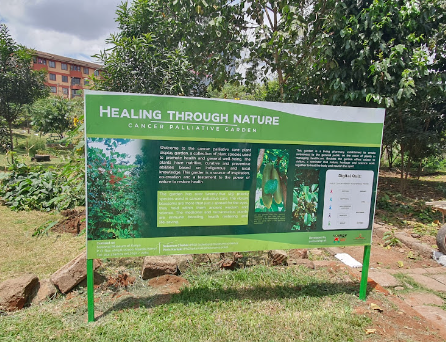David Kimondo takes pride in his work, having treated various ailments at his ‘hospital’ in Chaka Mweiga using traditional medicine for the past 30 years.
“I treat all the diseases except witchcraft,” he says confidently. “Arthritis? I can treat it in three hours. Diabetes? I handle it in one to two months,” Kimondo asserts without hesitation.
While there is no scientific proof to immediately verify Kimondo’s claims, he insists that herbal medicine works and that most hospitals have yet to embrace it. According to him, herbal medicines are free from the side effects commonly associated with conventional drugs.
“The conventional medicines for high blood pressure can eventually lead to side effects like strokes,” Kimondo explains. “Diabetic drugs can cause kidney failure, but herbal medicines have no side effects.”
He argues that herbal remedies have the benefit of addressing multiple ailments simultaneously, with one herb potentially treating up to 20 different conditions. Kimondo advocates for government support in enhancing the field of traditional medicine.
“We need universities that offer courses on traditional medicine and laboratories to test different herbs to improve standards,” he says. He envisions Kenya reaching the level of countries like China and India in this field.
Kimondo also suggests that the Kenya Bureau of Standards should establish parameters for herbal medicine. He highlights that testing herbs often takes time and notes the challenge of sourcing local herbal books.
Kimondo voiced these concerns as Kenya marked African Traditional Medicine Day 2024 on August 31.
African Traditional Medicine Day has been observed annually on August 31 since its inception in 2003, celebrating the essential role traditional medicine plays in the health and well-being of generations across the continent.
The 2024 commemoration took place at the National Museums of Kenya, bringing together traditional medicine practitioners, government officials, and scientists. This year’s theme was “To support the provision of quality and safe traditional medicine through appropriate regulatory mechanisms.”
The event provided a platform for key stakeholders to discuss the development of regulatory systems to ensure the quality and safety of traditional medicine products, practices, and practitioners. It emphasized the significant impact of traditional medicine on health and well-being across Africa and highlighted the need for collaboration between government departments and other stakeholders to integrate traditional medicine into mainstream healthcare.
During the event, 100 participants who had completed a year-long course on plant medicine graduated.
The use of herbs became particularly notable when Kenya confirmed its first case of coronavirus on March 12, 2020, leading to widespread fear and uncertainty. In response, the Kenya Medical Research Institute (Kemri) issued an advisory on the use of herbal and traditional medicine for managing the virus.
Kemri noted that while media reports suggested the use of herbal remedies in combination with conventional drugs in various parts of the world, no concrete scientific evidence had been presented to support these claims.
“As it stands now, there is no herbal or traditional medicine ascertained to be of therapeutic benefit in Covid-19 management,” Kemri stated.



